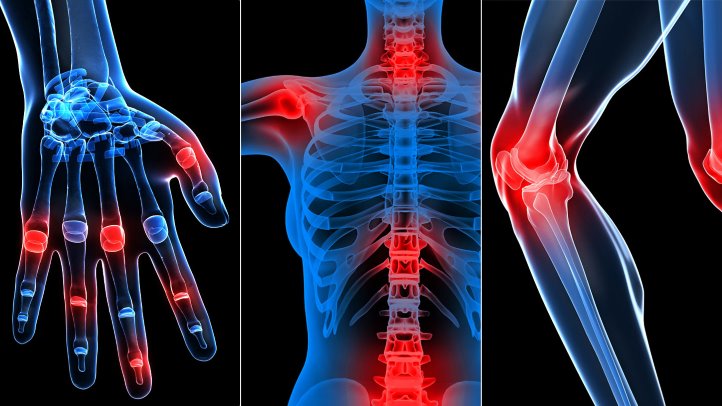Rheumatic Patients Taking Interleukin Inhibitors At Risk Of Increased Infection And Cancer
Source: Thailand Medical News Oct 25, 2019 6 years, 1 month, 3 weeks, 2 days, 4 hours, 48 minutes ago
A new meta analytic study by medical researchers from the University of Arizona, Tucson indicate that patients with r
heumatic diseases that are treated with
interleukin inhibitors have increased risk of serious infections, opportunistic infections, and
cancer.

Dr Jawad Bilal from the University of Arizona, Tucson, co-author of the study told
Thailand Medical News, “These findings can inform shared decision-making when patients and clinicians are contemplating the use of
interleukin inhibitors.”
To investigate these risks, study authors searched various databases for clinical trials evaluating interleukin therapy vs placebo in patients with
rheumatic diseases in which safety data were reported. They identified 74 studies that included 29,214 patients; treatments evaluated in these studies included tocilizumab (18 trials), secukinumab (15 trials), anakinra (8 trials), ixekizumab (6 trials), rilonacept (6 trials), sarilumab (4 trials), sirukumab (4 trials), ustekinumab (4 trials), brodalumab (3 trials), guselkumab (2 trials), clazakizumab (2 trials), canakinumab (1 trial), and olokizumab (1 trial).
Pooled analysis showed that treatment with
interleukin inhibitors was associated with a higher risk of serious infections (infections resulting in hospitalization, use of antibiotics, or death) when compared with placebo (odds ratio [OR] 1.97; 95% CI, 1.58-2.44;
P <.001; I
2 = 0%; high certainty). Moreover, the risk of opportunistic infection was found to be increased with
interleukin inhibitors vs placebo (OR 2.35; 95% CI, 1.09-5.05;
P =.03; I
2 = 0%; moderate certainty).
In addition, study data showed an increased risk of
cancer in patients with
rheumatic diseases treated with
interleukin inhibitors (OR 1.52; 95% CI, 1.05-2.19;
P =.03; I
2 = 11%; moderate certainty). “The findings in our study suggest that the risk of
cancer may be increased with longer [interleukin] inhibitor therapy,” the study authors added.
Based on their findings, the authors concluded that infection risk with
interleukin inhibitors appears to be comparable to what has been observed with other biologic therapies (ie, tumor necrosis factor inhibitors), while real-world data are needed to confirm the potential for increased cancer risk with long-term therapy.
Neverthel
ess, they say that the possibility of increased
cancer risk with long-term IL inhibitor use should be taken into consideration.
Patients currently on these drugs are advised to consult their doctors before making any attempts to stop or switch drugs.
Reference: Risk of Infections and Cancer in Patients With Rheumatologic Diseases Receiving Interleukin Inhibitors: A Systematic Review and Meta-analysis. Bilal J, Berlinberg A, Riaz IB, Faridi W, Bhattacharjee S, Ortega G, Murad MH, Wang Z, Prokop LJ, Alhifany AA, Kwoh CK1. JAMA Netw Open. 2019 Oct 2;2(10):e1913102. doi: 10.1001/jamanetworkopen.2019.13102. https://www.ncbi.nlm.nih.gov/pubmed/31626313
